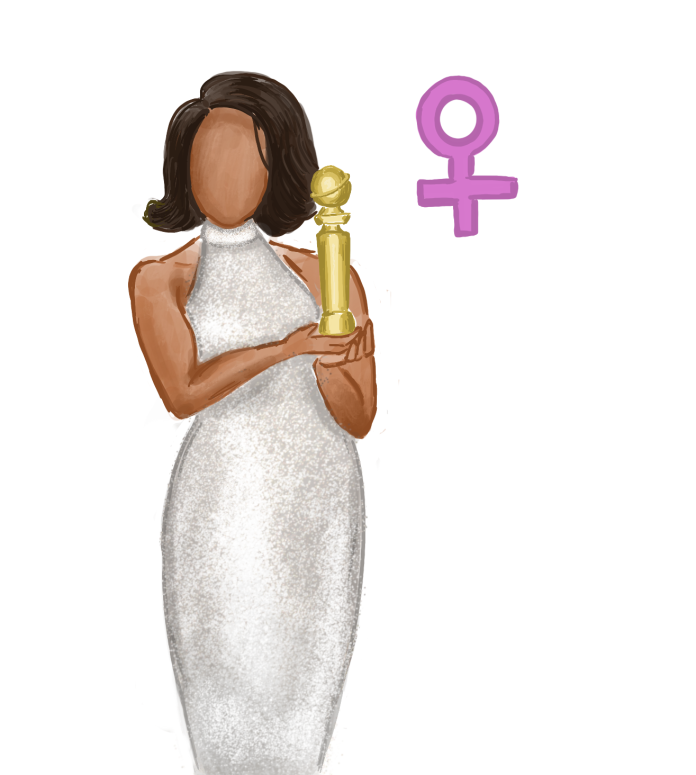Mollie Shiflett ’26 is a history major who may also major in linguistics. She plays on the Gold Women’s Club Soccer team for the College of William and Mary and is an avid fan of most sports — except golf. Email Mollie at mrshiflett@wm.edu.
The views expressed in this article are the author’s own.
“‘Oppenheimer’ is based on a 721-page, Pulitzer Prize winning book about the Manhattan Project, and ‘Barbie’ is on a plastic doll with big boobies.”
That is what comedian Jo Koy said in his Golden Globes monologue Jan. 7. To be fair, he’s technically right since the film is centered around a doll, which is definitely plastic and not anatomically accurate. But that’s what a lot of Hollywood is all about: trivializing women and their achievements because of their appearance. “Barbie” is a movie that examines the misogyny and female empowerment — or the lack thereof — in our world. That joke drew a lot of criticism for its reductive nature, although “Barbie” director Greta Gerwig has said that he was “right on” about the basis of the film.
I don’t want to spend too long on a Golden Globes monologue that will go down in history as one of the most cringe-inducing and awkward openers in the history of the award show. There’s nothing fun to say about a grown man getting defensive when a room of people won’t laugh at his jokes (although in my opinion, if you want people to laugh you need to be funny, and if you’re a stand up comic, you should have learned how to identify a good joke by now). What I want to talk about is something that no doubt has been talked about and will be talked about again, but it’s something that “Barbie” as a movie addresses and that Koy seems to be neglecting: the perilous double standard that exists for women in media and indeed famous women at all.
Women in this period, especially successful women, are praised for their abilities, but it’s all just lip service. Women like Dolly Parton are adored for their contributions to their field — she has been a driving force in country music, and music in general for going on fifty years, but women in country music still don’t get a fair shake. According to Marissa Moss’s book Her Country, there is — or has been — an unwritten rule in the country music radio world that says that female artists should never be played back to back, and generally speaking not more than one in an hour, but of course, women are equal to men.
In the last 11 years, women have made up only 13.9% of nominees for major categories at the Grammy Awards. Feminists and activists will say that they always knew about this gender inequity — and of course they probably did — but most of us ignore it. We don’t think about the fact that for all the talk about female empowerment in this country, nothing is happening to change how these industries work. As Moss points out in Her Country, good old boys like Jason Aldean can cheat all they want, but if a woman like LeAnn Rimes has an affair with a married man, her career is over. That’s the double standard, as America Ferrera pointed out. For a woman to even be worthy of recognition in this world of old boys’ clubs, they have to be perfect, every minute of every f—ing day. I make a habit of talking about things that everyone that goes here already knows for the most part, being a fairly liberal population, but this is all the platform that I have to talk about the world around us which, for all its presentation of progress, doesn’t seem ready to do a damn thing to ensure equality.
I’m just sick to death of it. We like to wrap ourselves in a warm blanket and tell ourselves that things are getting better, but they’re not. For 60 years, there has been no real substantive change to the gender inequality that exists in media and the arts.
But everything is hunky dory. “Barbie” broke box office and cinematic records, but the only thing notable about it is that it’s about a doll with big boobs. Making a joke like that trivializes what Gerwig was able to make that doll say and how it made people feel deeply and think differently. Maybe Gerwig didn’t have a problem with it, but why don’t we flip the script. Both are great movies, but why don’t we phrase it like this? “‘Barbie’ is a movie that takes a symbol of gender stereotypes and challenges the patriarchal set up of today’s world, ‘Oppenheimer’ is a biopic about a man who almost single handedly allowed for the slaughter of more than 200,000 people.”
How’s that for reductivist?




































